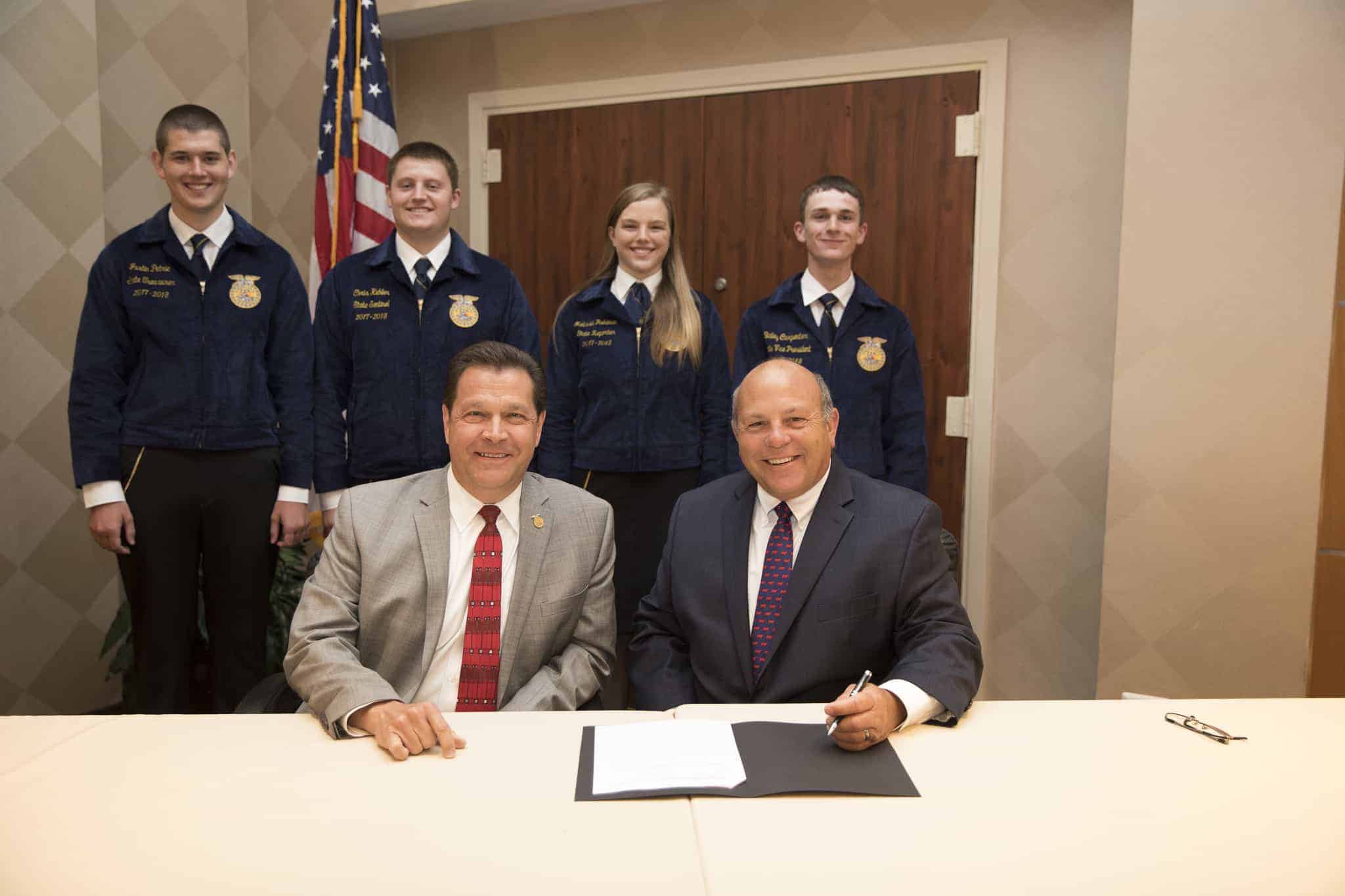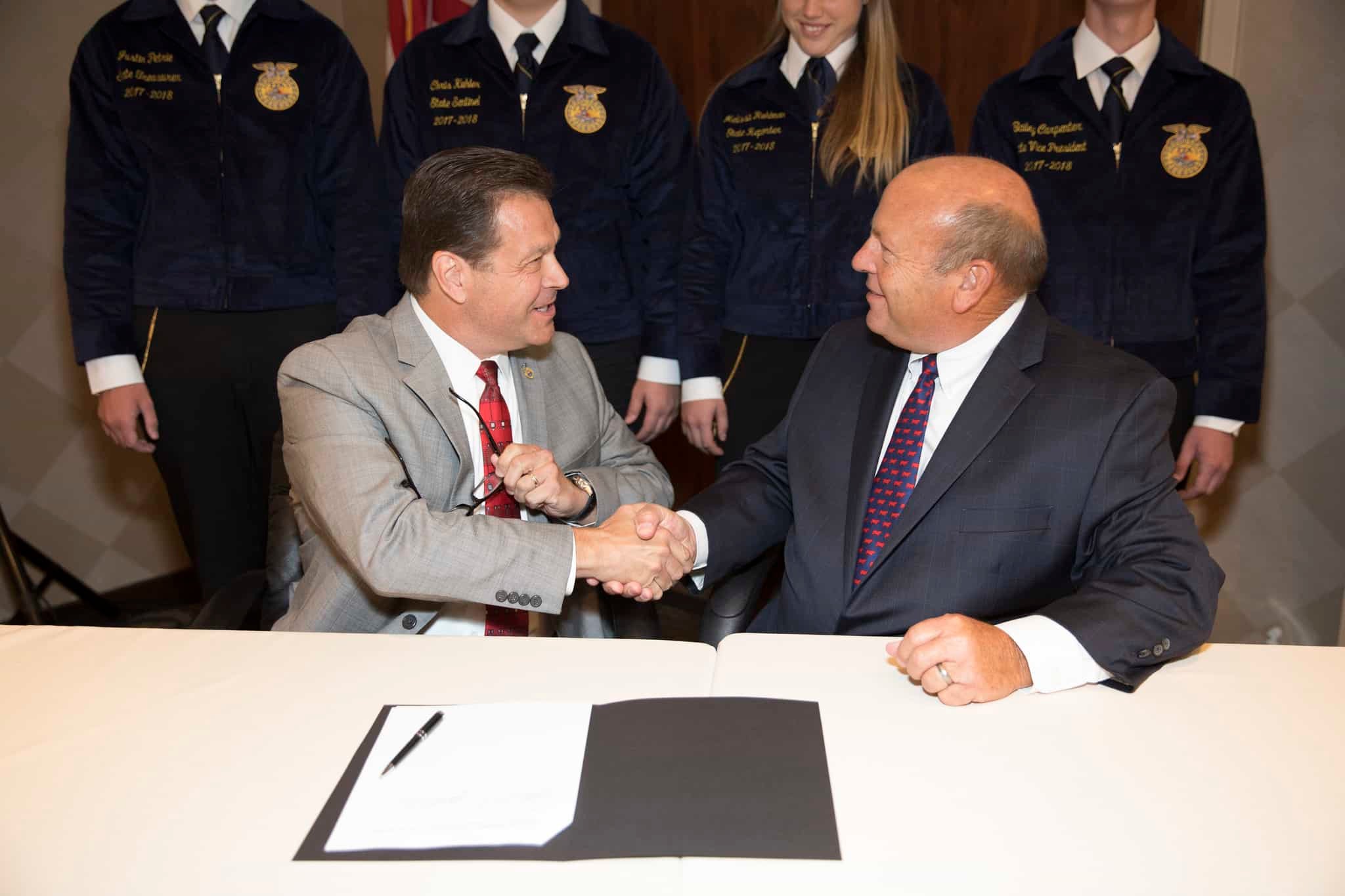The American Farm Bureau Federation and National FFA Organization signed a memorandum of understanding Tuesday to grow leaders, build communities and strengthen agriculture. The MOU outlines how the two organizations will work together to discover opportunities that benefit both their members and agricultural education students in all 50 states, Puerto Rico and the U.S. Virgin Islands.
“This is an opportunity for us to share the story of agriculture and agricultural education,” said Mark Poeschl, chief executive officer of the National FFA Organization. “Our organizations know that agricultural education provides leadership development, career success and personal growth. This MOU allows us to recognize the role of school-based agricultural education.”

National FFA CEO Mark Poeschl and AFBF President Zippy Duvall sign a memorandum of understanding strengthening collaboration between the two organizations. Behind them are Virginia FFA officers (left to right): Justin Petrie, treasurer; Chris Kuhler, sentinel; Melissa Ruhlman, reporter; and Bailey Carpenter, vice president. (Credit: AFBF)
The MOU was signed in Washington, D.C., during a national meeting of state Farm Bureau presidents from across the country.
“Farm Bureau has long supported agricultural education’s critical role of creating opportunities for the next generation of agricultural professionals,” said AFBF President Zippy Duvall. “This formal collaboration with National FFA will help us build on that legacy. We look forward to empowering young people to explore how they can be a part of agriculture’s bright future, from farming and ranching to agri-business and food-related careers.”
Together, FFA and AFBF will attract, educate, inspire and prepare students to enter careers in the agriculture, food, fiber and natural resources industry. In addition, the two organizations will broaden the definition of “agriculturally related careers” to encompass the vastness of professions in the industry of agriculture. FFA and AFBF will determine existing connections between county Farm Bureaus and local FFA chapters as well as state Farm Bureaus and state FFA associations. The MOU also allows AFBF to serve as a member of the FFA Agricultural Policy Committee. FFA will use AFBF-branded advocacy resources and materials to train state FFA officers and find ways for FFA and AFBF members to interact during policy discussions or in policy communications.












